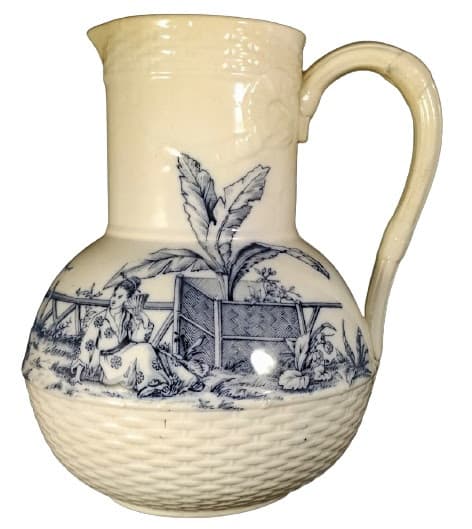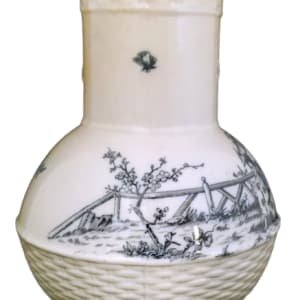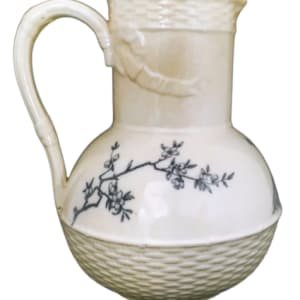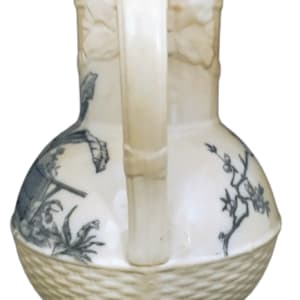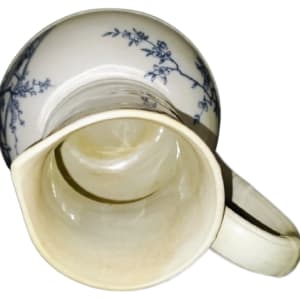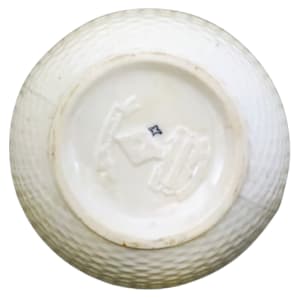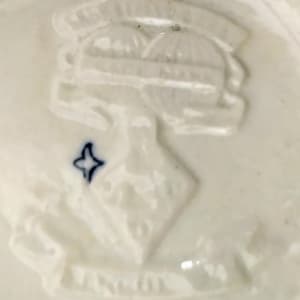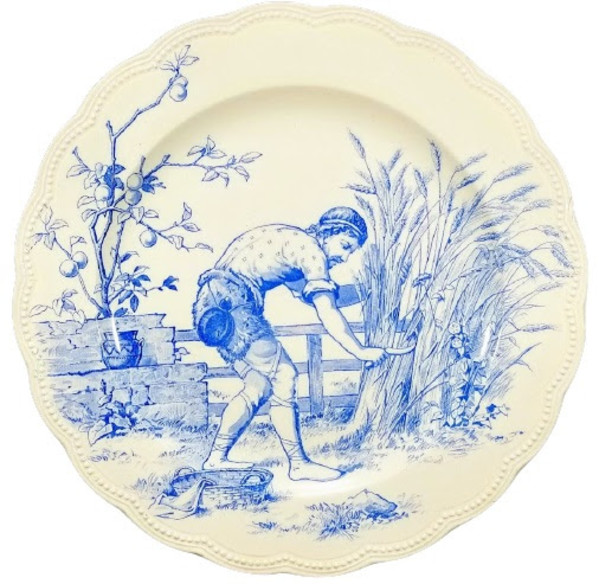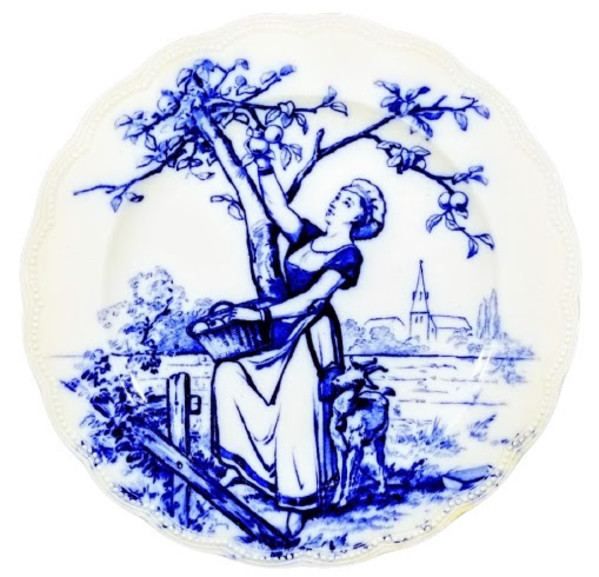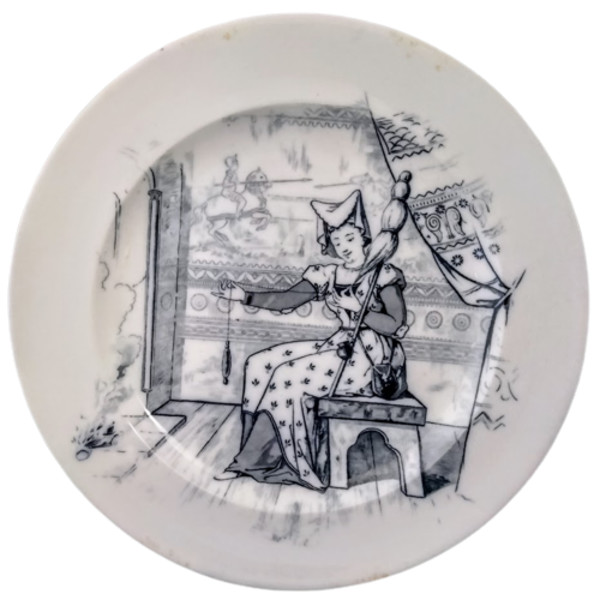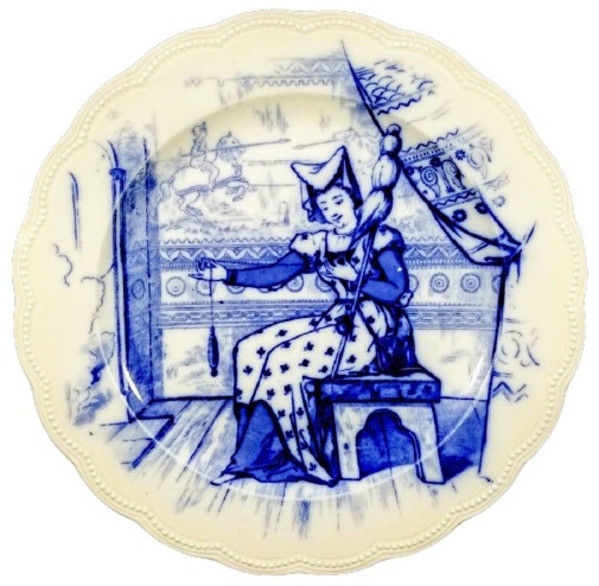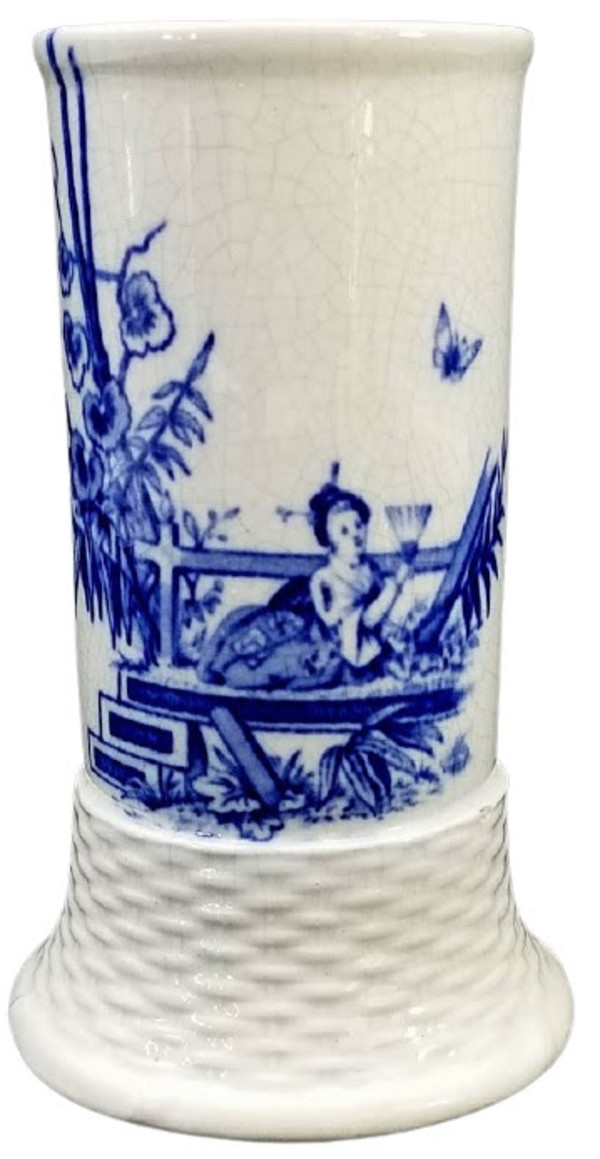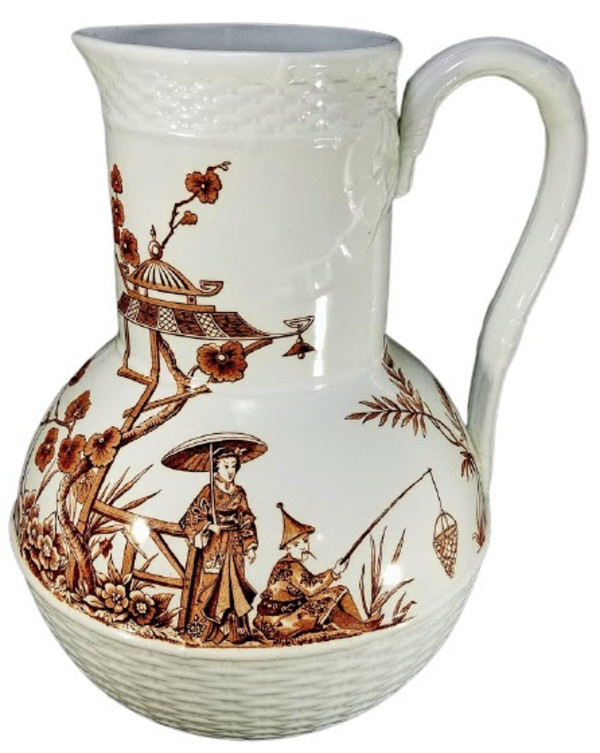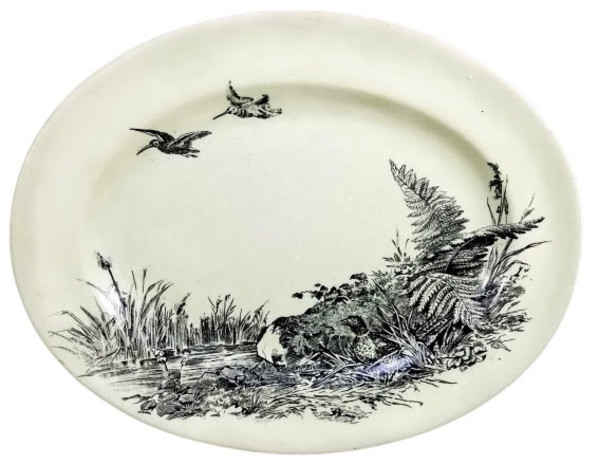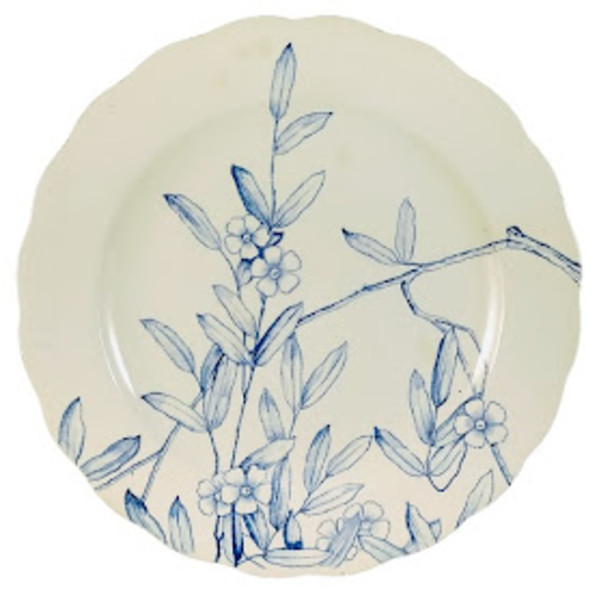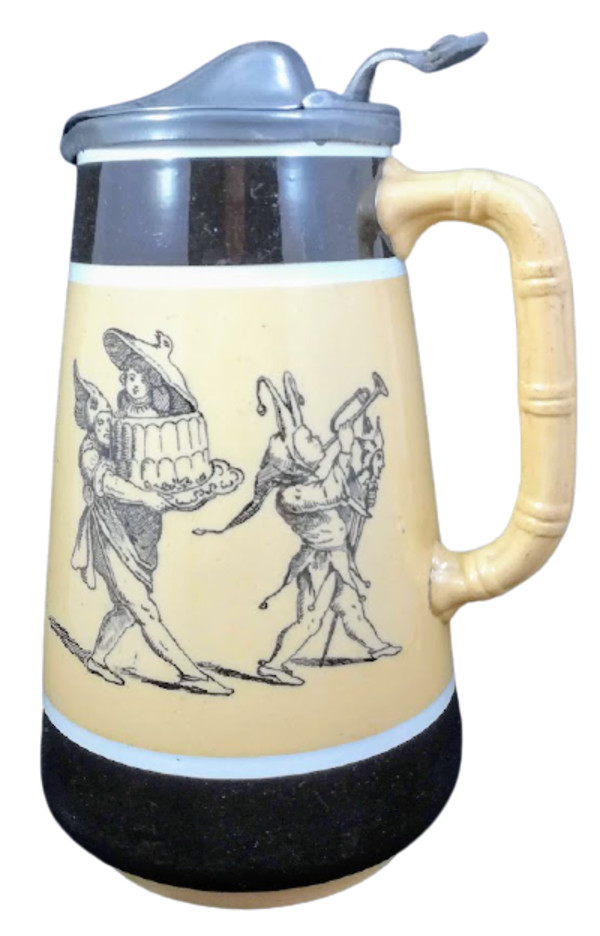- William Brownfield & Son(s)
- Mandarin, c. 1871-1876
- Earthenware
- 7 in (17.78 cm)
-
Not For Sale
Pitcher, 7 inches tall. Blue transfer. Molded maker's mark for William Brownfield & Son. This pattern features a Japanese woman in kimono, seated in front of a long fence that extends on to the area under the spout. The main pattern also has a large plant inside a square basketweave planter. Smaller flowers and grasses are seen along the fence. A small branch with flowers fills space on the opposite side.
The Brownfields were potters in Cobridge, North Staffordshire from about 1837 to the 1890s. William Brownfield began as a junior partner in the firm of Robinson, Wood & Brownfield, at a pottery formerly owned by Ralph & James Clews. Eventually William Brownfield appears to be the sole owner, the first reference appearing in White’s 1851 directory where we find under china and earthenware manufacturers, Brownfield Wm. Cobridge. The factory produced a range of earthenware, stone china and added stoneware and parian to their productions. In the International Exhibition of 1862 they were awarded a medal for “printed earthenware” but no details are given of the patterns. Entries at other International exhibitions followed. In 1871 William Etches Brownfield entered the business and it became William Brownfield & Son. William Sr. died in 1873 and William Jr. continued and his brother Edward Arthur Brownfield joined the firm. They continued to make a wide range of ceramics with occasional tour de force pieces for national and international exhibition, becoming one of the top ten Staffordshire factories. The company’s last swansong was an unusual venture fostered by Arthur Edward Brownfield, who in 1892 created a Potter’s Guild based on John Ruskin’s principles. But this “cooperative” was unfortunately destined to failure and the company was wound up in 1900.
- Subject Matter: Aesthetic (Japonesque)
- Collections: Aesthetic Transferware, William Brownfield & Son(s)
